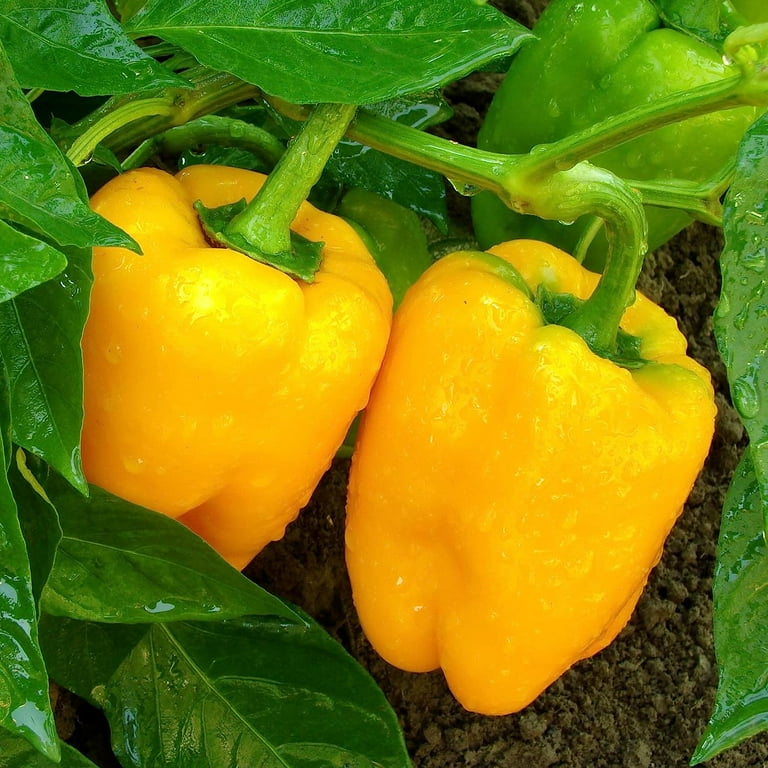Explore the Best Fertilizers for Peppers and Enhance Your Garden's Yield
Explore the Best Fertilizers for Peppers and Enhance Your Garden's Yield
Blog Article
Organic Vs. Synthetic Fertilizers: Which Is Best for Nurturing Healthy Pepper Plants?
In the realm of nurturing healthy pepper plants, the choice in between artificial and natural plant foods stands as a crucial decision with far-reaching effects. While both choices objective to provide important nutrients to support plant development, the nuances of their influence on the soil, plant wellness, and the atmosphere spark a discussion that mirrors throughout the gardening area. Comprehending the distinct benefits and prospective pitfalls of each plant food type is essential for pepper farmers seeking to optimize their returns while maintaining a lasting and eco-conscious strategy.
Advantages of Organic Fertilizers
Organic plant foods provide a sustainable and environmentally-friendly approach to nourishing pepper plants, providing necessary nutrients without the use of artificial chemicals. These natural plant foods are originated from natural sources such as garden compost, manure, bone dish, and seaweed, advertising soil wellness and biodiversity. Unlike synthetic fertilizers, natural choices launch nutrients slowly, making certain a balanced and consistent supply for pepper plants to thrive.
One considerable advantage of organic fertilizers is their capacity to improve dirt structure and water retention. By boosting soil health and wellness, natural plant foods promote helpful microbial task, which aids in nutrient uptake by pepper plants. In addition, natural fertilizers decrease the danger of chemical run-off, protecting water sources from contamination and guarding the environment.
Additionally, natural plant foods add to long-term soil fertility by promoting the growth of valuable soil organisms. These organisms assist break down raw material, launching nutrients in a form that is easily accessible to pepper plants. best fertilizers for peppers. By promoting a healthy soil environment, natural plant foods sustain lasting pepper farming practices that benefit both plants and the environment
Drawbacks of Synthetic Fertilizers
Artificial plant foods, in contrast to their organic equivalents, present various disadvantages when made use of to nourish pepper plants, impacting both plant wellness and ecological sustainability. One major drawback of artificial fertilizers is their propensity to leach nutrients from the soil promptly.
In addition, the overuse of synthetic plant foods can add to water pollution. Excess plant foods not absorbed by plants can get rid of into water bodies, leading to eutrophication, where algae flowers deplete oxygen degrees in the water, harming marine life. Additionally, artificial fertilizers are generally stemmed from non-renewable resources, such as nonrenewable fuel sources, adding to carbon emissions and environmental destruction during their manufacturing.
Nutrient Absorption Comparison
When comparing artificial and natural plant foods in terms of nutrient absorption, natural plant foods have the advantage of providing a much more balanced and slow-release source of nutrients. Organic fertilizers consist of a selection of macro and trace elements that are not just beneficial for the plants but also promote healthy soil microbial activity, which aids in nutrient uptake.
Furthermore, organic fertilizers enhance dirt framework and water retention capacity, permitting pepper plants to accessibility nutrients extra successfully. This better dirt high quality assists in origin advancement, allowing much better nutrient absorption. Synthetic fertilizers, although initially increasing plant growth due to their high nutrient focus, might impede long-lasting nutrient absorption by degrading dirt wellness gradually.
Environmental Impact Considerations

On the various like this other hand, synthetic plant foods, although typically more focused and quickly readily available to plants, can have detrimental results on the environment otherwise used properly (best fertilizers for peppers). Their manufacturing needs high power inputs, causing greenhouse gas emissions and adding to climate adjustment. The drainage of excess synthetic fertilizers can infect water sources, leading to eutrophication and hurting marine communities.
Ideal Plant Food Practices for Peppers
When fertilizing pepper plants, enhancing nutrient uptake and decreasing ecological impact are essential factors to consider. To attain this, it is important to comply with finest plant food techniques customized to the specific requirements of pepper plants. One vital technique is to perform a soil test additional resources before applying any fertilizers. This test can identify the pH level of the dirt and determine any type of nutrient shortages, assisting you in choosing one of the most appropriate plant food formulation.
One more vital method is to feed pepper plants at the best time. Usually, peppers gain from receiving fertilizer at growing and after that once again when they start to blossom. Over-fertilizing can bring about nutrition discrepancies and harm the plants, so it is vital to adhere to suggested application rates.
In addition, selecting a balanced fertilizer with an NPK proportion that suits pepper plants' needs is fundamental. Eventually, combining organic and artificial plant foods sensibly can aid nurture healthy and balanced pepper plants while minimizing environmental influence.
Conclusion

Organic plant foods supply a sustainable and environmentally-friendly approach to nourishing pepper plants, supplying essential nutrients without the use of artificial chemicals. Unlike artificial plant foods, organic choices launch nutrients gradually, ensuring a well balanced and constant supply for pepper plants to thrive.
Synthetic fertilizers, in comparison to their natural equivalents, pose various downsides when made use of to nurture pepper plants, impacting both plant health and environmental sustainability. When comparing organic and artificial plant foods in terms of nutrient absorption, natural plant foods have the benefit of providing a more balanced and slow-release source of nutrients.Additionally, natural plant foods boost soil structure and water retention capacity, allowing pepper plants to access nutrients much more effectively.
Report this page